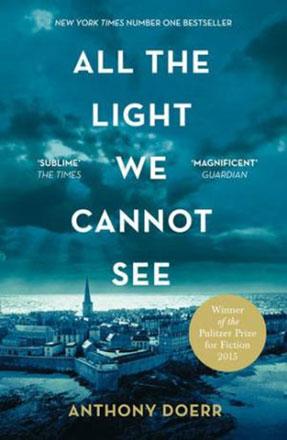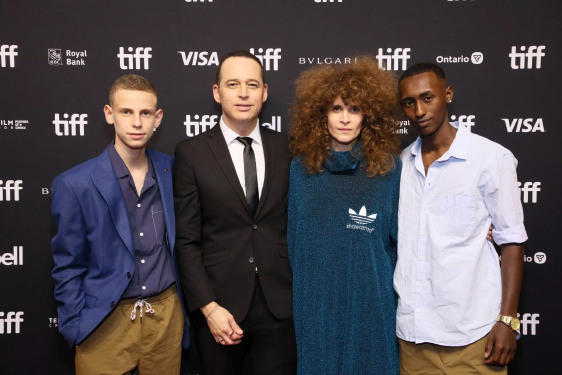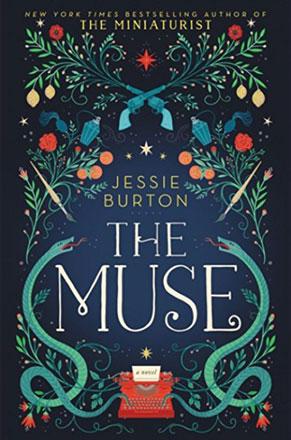You are here
The advantages of being different
Mar 12,2017 - Last updated at Mar 12,2017

All the Light We Cannot See
Anthony Doerr
New York: Scribner, 2014
Pp. 531
“All the Light We Cannot See” chronicles the coming of age of two children amidst the cruel chaos of World War II. By virtue of birthplace, they are on opposite sides, but they share the fact of being disadvantaged, yet remarkably gifted at the same time. Maria is French and blind, but thanks to the boundless inventiveness and caring of her father, she sharpens her mind and other senses, mainly touch.
Days spent at the National Museum of Natural History, where he is the chief locksmith, give her a wealth of scientific and cultural knowledge. Tracing the miniature model he has carved of their part of Paris trains her to move about on her own, and this model will play a crucial role in the plot.
Werner is German, raised in an orphanage with only basic schooling, but having inborn insight into radios. At the age of eight, he assembles the pieces of a broken shortwave to the delight of his sister and their caretaker. Together, they listen to classical music and a French science programme for children.
One particular broadcast gives voice to the novel’s themes of light and human creativity: “The brain is locked in total darkness… And yet the world it constructs in the mind is full of light… So how, children, does the brain, which lives without a spark of light, build for us a world full of light?” (p. 48)
Unfortunately for Maria and Werner, as for millions of others in the late 1930s, it is the forces of darkness, not light, that are on the march. Even the meaning of radio changes: Now “it ties a million ears to a single mouth. Out of loudspeakers… the staccato voice of the Reich grows… Only through the hottest fires, whispers the radio, can purification be achieved. Only through the harshest tests can God’s chosen rise” (p. 63)
Soon, the French broadcast is silenced in Germany, but its echoes will be heard later in the story.
Fear spreads in Paris, and the museum staff works overtime to hide its treasures in expectation of the German attack. Maria and her father join the throngs fleeing the capital. Meanwhile, Werner’s cleverness has been noticed; he is recruited into an elite school that teaches the branches of science needed by the military. He goes eagerly as it is his only chance to escape working in the mines where his father died. He thinks of what he can learn, not of what his skills will be used for. Sent to the front in France, he sees his radio reconnaissance unleashing bombs on homes and farms where resistance fighters are thought to be located, and is horrified into numbness.
As the German army charges across France, one wonders if Maria and Werner will meet, but even greater suspense derives from the profession of Maria’s father. A German officer stalks Maria, thinking she holds the key to the museum’s greatest treasure, a legendary diamond, said to have magical powers, which he wants to add to Hitler’s collection. Can a blind girl win this breathtaking cat-and-mouse game?
The story unfolds in short chapters that go back and forth in time, following the war from the viewpoint of a number of characters and filling us in on their backgrounds. While light is the main metaphor, Anthony Doerr carefully crafts his characters and settings to bring in multiple themes. Indeed, no character or detail seems gratuitous. Taken together, they amount to an indictment of war, and an affirmation of the human spirit.
Doerr’s descriptions of the horrors of war are subtle, but searing in their intimacy; death and destruction are rendered as experienced by various characters. It is mostly by contrast with prewar life that the cruelty and senselessness of war is set in stark relief. Whether describing the charms of Paris life, the exquisite items in the museum, the beauty of the sea in the town where Maria and her father take refuge, or the music and literature they enjoy, Doerr shows life as it should be, as it had been, before the war.
The implicit contrast is what could have been if not for fascism and the war. What might Werner have invented had he not been inducted into the war machine? What about Frederick, Werner’s only friend at the school, who loved to draw birds, but was bullied almost to death for not being tough enough? Frederick is a good example of a relatively minor character who nonetheless introduces an important theme into the novel: He is the only student not to blindly follow orders; he makes a choice, similar to many French men and women who decide to engage in resistance to the occupation, realising that, though risky, it is the only way to truly live.
It is challenging to review a book so full of characters, themes, ideas and details, almost all of which are significant. It is no wonder that Doerr received the Pulitzer Prize, the US’s highest literary award, considering the beauty of his prose and his ability to tie so many threads together into a thrilling story with a deeply humanistic message. While the Nazis tried to eliminate all those who did not fit their contrived ideal, this novel foregrounds the positive potentials of being different.
Sally Bland
Related Articles
LONDON — When Timo Werner seals his imminent move from RB Leipzig to Chelsea, the German’s turbulent rise from national pariah to one of Eur
TORONTO, Canada — When Ron Leshem, executive producer of the Emmy-winning television series "Euphoria", was deciding where to premiere


















